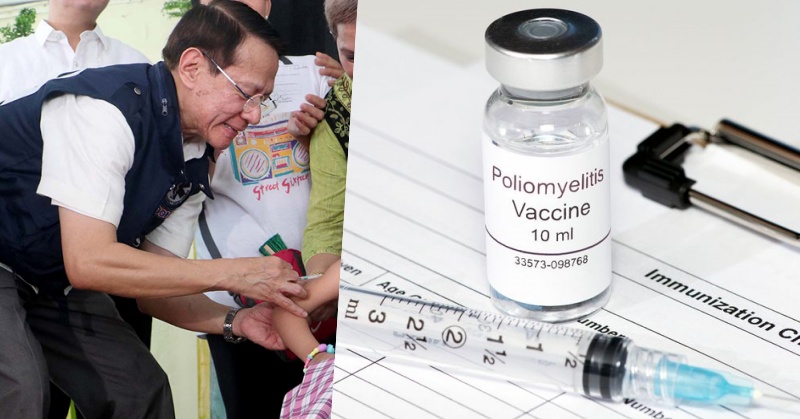After having been declared by the World Health Organization as a polio-free country during the last 19 years, the Philippines has regressed to its former healthcare status after a case of polio has been reported involving a three-year-old girl in Lanao del Sur.
Following the report, the poliovirus has also been present in water sewage samples in Manila and Davao.

DOH Declares Epidemic with Return of Polio in the Philippines
According to the Department of Health (DOH), “A single confirmed polio case of vaccine-derived poliovirus type 2 (VDPV2) or two environmental samples that are genetically linked isolated in two different locations can be considered as an epidemic.”
Of note, Health Secretary Francisco Duque III previously warned about the re-emergence of polio due to the decline on the number of people getting vaccines following the Dengvaxia incident which reportedly claimed the lives of a number of school children in various parts of the country.
On Friday (September 20), the Health Department stated that one reason why polio was back in the country was because of the vaccine scare caused by the Dengvaxia controversy.
Duque explained that there are actually a handful of reasons for the re-emergence of polio in the country after 19 years.
He cited the Dengvaxia scare, the “anti-vaxxers”, as well as the rampant misinformation in the country as some of the main reasons for polio’s return in the country.
Furthermore, Duque pointed out that poor sanitation practices and generally poor environment contributed to the return of the virus.
The health secretary explained in the vernacular, “Kulang sa paghuhugas ng kamay, so fecal oral route [meaning] ang hawaan dito ay galing sa dumi ng tao, tapos nakahawak ng pagkain at susubo, ‘yun ang umpisa.”
{T/N: The lack of hygienic practices such as handwashing exposes those who touch contaminated items then use their hands to feed or prepare food encourages the spread of the virus.}
Earlier this year, President Duterte called on to Filipino families to have their children vaccinated despite the Dengvaxia mishap, which prompted a nationwide vaccination scare following the reported cases of school children who were inoculated during nationwide campaigns supported by the former administration.
In response to this, the DOH, in close coordination with local government units and concerned national agencies, and with the support of WHO, the United Nations Children’s Fund (UNICEF), and other partners, is preparing a rapid response to the polio outbreak.
Part of this initiative includes a series of synchronized oral polio vaccinations to protect every child under the age of 5 years in areas at risk starting in October 2019.
ALSO READ: How to Get a PhilHealth ID